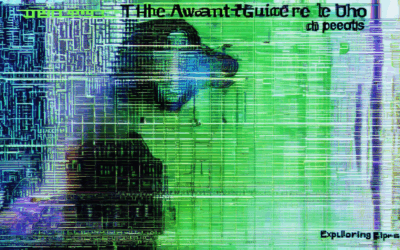Hip hop beats are the heartbeat of one of the most influential music genres in the world, serving as the foundation for iconic tracks that resonate deeply with audiences. From the gritty street vibes of New York to the smooth West Coast grooves, these beats form the backbone of every record, making them irreplaceable elements that connect artists with their listeners on a profound level. Whether it’s the hard-hitting basslines of Southern hip hop or the melodic hooks of Golden Age classics, the art of crafting the perfect beat has evolved significantly over time, shaping the cultural landscape of music.

What is the best hip-hop beat maker?
We’ve compiled a list of the top hip-hop beat makers who consistently deliver high-quality productions:
- Timbaland – Known for his innovative beats and collaborations with major artists, Timbaland has been a pioneer in hip-hop production for over two decades.
Explore Timbaland’s official website - Dr. Dre – One of the most influential producers in the genre, Dr. Dre’s work spans iconic albums and collaborations with legends like Snoop Dogg and 50 Cent.
Visit Dr. Dre’s official page - Kanye West – Beyond his career as a rapper, Kanye West’s production skills have redefined hip-hop with groundbreaking tracks and album projects.
Discover Kanye West’s music - Swizz Beatz – Renowned for his versatility and ability to blend genres, Swizz Beatz has produced hits for artists across the music spectrum.
Check out Swizz Beatz’s work - Just Blaze – A legend in the hip-hop community, Just Blaze’s productions are celebrated for their authenticity and emotional impact.
Explore Just Blaze’s music - Young Thugger – Known for his unique sound and contributions to trap music, Young Thugger’s beats are synonymous with modern hip-hop.
Visit Young Thugger’s page - Famous DJ – With a discography spanning various genres, Famous DJ’s contributions to hip-hop have left an indelible mark.
Learn more about Famous DJ - 9th Wonder – Celebrated for his lyrical prowess and production skills, 9th Wonder has been instrumental in shaping the sound of hip-hop.
Discover 9th Wonder’s music - Pharaohep – Known for his cinematic soundscapes, Pharaohep’s beats have been featured in films and praised by critics alike.
Explore Pharaohep’s work
How Much Does a Hip-Hop Beat Cost?
The cost of a hip-hop beat can vary significantly based on several factors:
- Producer Reputation: Established producers often charge higher rates due to their recognition. Beginner producers might charge between $50 and $300, while renowned producers can command fees ranging from $300 to over $10,000.
- Beat Type: Instrumental beats typically cost less than those with pre-recorded hooks or verses. Instrumental beats may range from $500 to $2,500, while fully produced tracks with vocals could cost between $1,500 and $8,000.
- Lease Duration: Short-term leases (for a single song) usually cost between $100 and $500, while longer leases (for multiple uses) can range from $500 to $3,000, granting more rights.
- Exclusive Rights: Acquiring exclusive rights can increase the cost, often pricing between $5,000 and $15,000, depending on the producer’s demand. Non-exclusive rights are generally cheaper, costing between $500 and $3,000.
- Genre Influence: Popular genres like trap might cost more, ranging from $800 to $5,000, while lo-fi or boom bap beats may be priced lower, around $200 to $1,500.
- Platform and Customization: Beats sold on platforms like Beatport or Audiojungle might start around $20 to $150, though custom, high-quality tracks can exceed $10,000.
Negotiation and relationships also play a role, with artists sometimes securing discounts or better rates through connections. The total cost ultimately depends on the specifics of the deal, including the beat’s complexity, usage rights, and producer demands.

What Are the Best Hip-Hop Beats?
The world of hip-hop is rich with iconic beats that have shaped the culture and influenced countless artists. Here’s a curated list of some of the greatest hip-hop beats:
- Classic Era Beats
- Public Enemy – “Fight the Power”
- Boyz II Men – “End of the Line”
- Biggie Smalls – “Juicy”
- Eminem – “Rhythm to the Beat”
- Golden Age Beats
- Kendrick Lamar – “DNA”
- J. Cole – “True Math”
- Nas – “Nasty”
- Lewis Parker – “The Bridge”
- Modern Classics
- Drake – “Hotline Bling”
- Rihanna – “Umbrella”
- Snoop Dogg – “Gin & Juice”
- Kanye West – “Stronger”
- Underground Gems
- MF DOOM – “Metallic”
- Madlib – “Shyne”
- DJ Shadow – “Midnight Soul”
- Ghostface Killah – “Mr. White”
These beats have left an indelible mark on the genre, blending powerful basslines, intricate rhythms, and evocative melodies. Many of these tracks have become anthems for fans worldwide.
Explore more hip-hop beats and discover the stories behind them on AbstractHipHop.com , your ultimate destination for all things hip-hop.

What is the Most Sampled Hip-Hop Beat?
The most sampled hip-hop beat is the iconic drum break from The Winstons’ 1969 track, “Amen, Brother,” commonly referred to as the “Amen break.” This seven-second segment has become a cornerstone of hip-hop production, appearing in over 6,000 tracks and influencing countless artists.
The Amen break’s versatility and rhythmic complexity make it a favorite among producers, enabling it to fit seamlessly into various genres while maintaining its distinct identity. Its widespread use has cemented its place as a defining element of hip-hop culture.
Competitors and Notable Beats
While the Amen break reigns supreme, several other beats have also made significant contributions to hip-hop sampling. Notable competitors include:
- “Funky Drummer” by James Brown : A timeless classic that has been sampled extensively, contributing to the development of hip-hop’s distinctive rhythm.
- “Rhythm to the Beat” by Joe Walsh : Known for its hypnotic bassline, this track has been a staple in many productions.
- “Bongo Bong” by M.F. & E : A track that blends Latin rhythms with electronic beats, offering a unique sound that has been widely emulated.
Historical Context
The prevalence of these beats in hip-hop sampling highlights the genre’s deep-rooted connection to African American musical traditions. The reuse of these recordings, often through vinyl records, reflects the cultural and artistic adaptation of existing works, shaping the evolution of hip-hop into a global phenomenon.
For more information on the history and impact of these beats, visit our article on the Amen break and explore other related pieces on our site.
The Most Sampled Sound Ever
- Ain’t No Mo’ (Remix) – The Beatles
- Sampled Music
- Breakin’ Bread
- Get Lucky
- Stronger
- Billie Jean
- Smooth Criminal
- Can’t Get You Out of My Head
- Love on the Brain
- Blackbird

What is the hip-hop beat called?
The hip-hop beat is commonly referred to as “boom bap.” This rhythmic style is characterized by the heavy bass (“boom”) and snare drums (“bap”), which form the backbone of many classic hip-hop tracks. The term gained popularity in the early 1980s and remains a cornerstone of hip-hop production.
Key Components of Boom Bap
- Boom : Refers to the deep, resonant bass or kick drum, often created by sampling vinyl records.
- Bap : Represents the sharp, clicking sound of the snare drum, typically produced with analog synthesizers or drum machines.
Variations of the Hip-Hop Beat
While boom bap is the most iconic, hip-hop beats can take various forms depending on the producer and the musical style:
- Trap Beats : Known for their heavy basslines, hi-hats, and often dark, moody atmospheres. Producers like Metro Boomin and 808 Mafia are famous for this style.
- Drill Music Beats : Characterized by high-energy tempos, aggressive synths, and hard-hitting drums. Artists like Young Thug and Future frequently use these beats.
- Lofi Beats : Feature smooth, jazzy melodies combined with mellow beats. Producers like J Dilla and Nujabes are known for this style.
Conclusion
The hip-hop beat, particularly boom bap, is a fundamental element of the genre, influencing countless tracks and artists. Its versatility allows for a wide range of subgenres, each bringing its own flavor to the world of music.





0 Comments